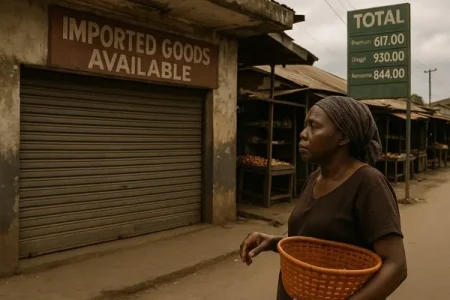
As Nigeria enforces a sweeping ban on foreign goods, it raises both hope and alarm: hope for reviving local industries, and alarm over the deepening hardship many citizens and small businesses already face.
- Fuel and product prices could rise due to the disruption of import-dependent supply chains, according to oil marketers under PETROAN.
- Small and mid-sized businesses that rely on imported inputs or compete with foreign products fear collapse, as access to materials and customers dries up.
- Supporters say the ban is a patriotic shift toward self-reliance and job creation, framing it as long overdue economic nationalism.
- Critics warn that without strong support for local production, the ban may backfire, accelerating inflation and reducing consumer access to basic goods.
- Ordinary Nigerians, still reeling from subsidy removal and currency devaluation, say they are being pushed to the brink.
In markets from Lagos to Kano, stall owners speak of silent mornings and fewer customers. “This ban isn’t just about goods,” says a trader in Onitsha. “It’s about our lives, our families, our survival.” For many, the dream of a stronger Nigeria feels distant under the weight of daily struggle.
Will local industries rise fast enough to meet demand, or will the policy deepen the gap between economic ambition and lived reality? What measures will protect the vulnerable while change unfolds?




